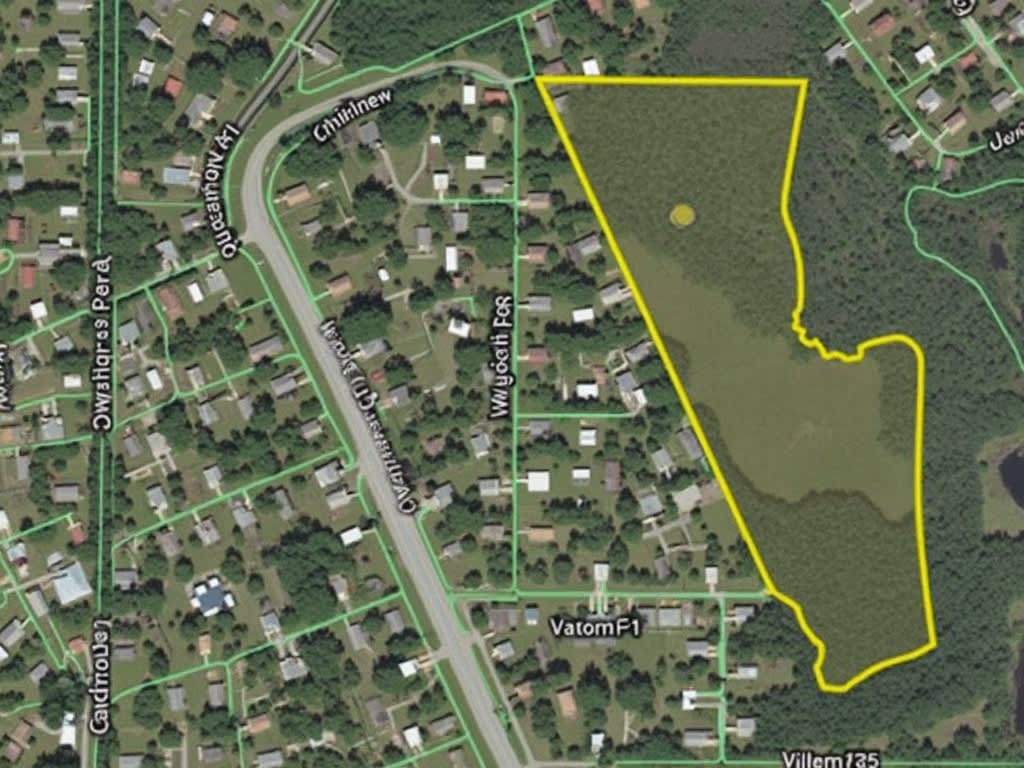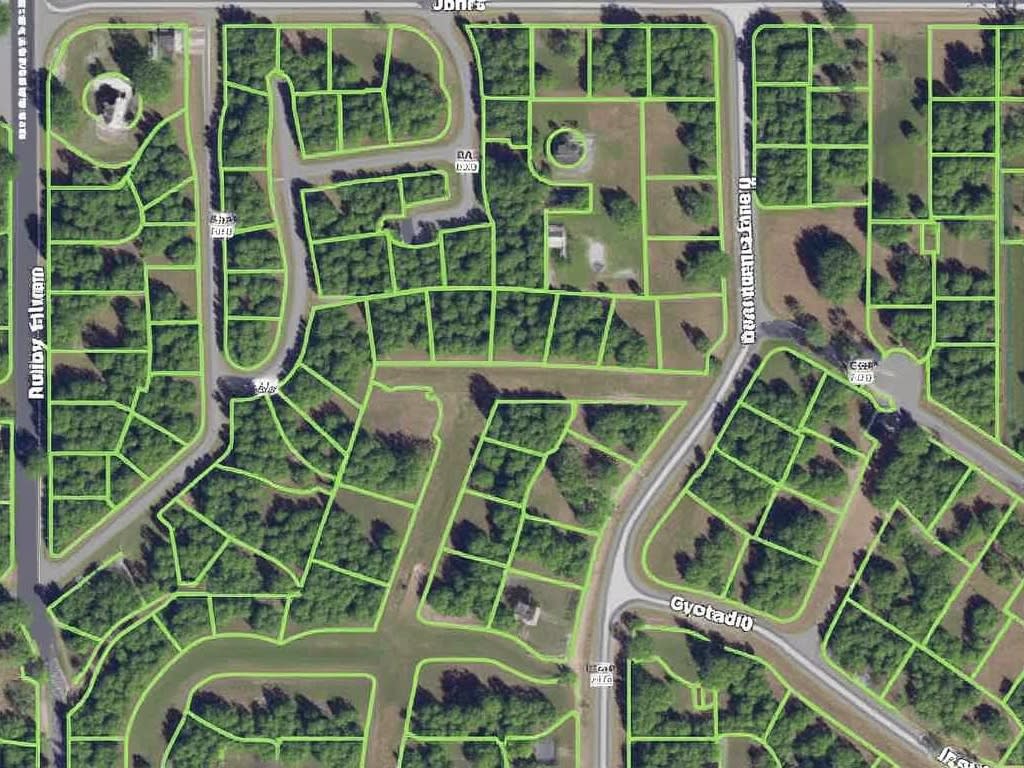Land transactions in Florida demand specific documentation to establish legal protection and binding agreements between parties. The core paperwork encompasses property deeds, title insurance policies, sales contracts, property surveys, and disclosure documents. Closing costs typically range from 2-6% of the sale price, covering document preparation and filing fees.
Key Takeaways
- Title search reports and insurance are required steps to verify legal ownership and safeguard against future claims. Expect to pay $150-500 for the search process
- Property surveys document critical boundary information, with most buyers (70%) choosing to complete surveys before finalizing their Florida land sale
- Sales contracts must specify the purchase price, describe the property accurately, set a closing date, and include detailed disclosures about environmental factors, zoning regulations, and property status
- Warranty deeds provide comprehensive buyer protection and require two witness signatures, notarization, and proper filing with the county clerk’s office
- The HUD-1 Settlement Statement functions as your complete financial record, listing all monetary components including fees, taxes, and commission structures
Essential Legal Documents for Florida Land Transactions
Key Documentation Requirements
Proper documentation serves as your protection during Florida land transactions. I recommend securing a property deed, title insurance policy, and a detailed sales contract before proceeding with any land purchase or sale. The deed transfers ownership rights, while title insurance shields you from potential future claims against the property.
Cost Considerations
The paperwork costs add up quickly in Florida land deals. Closing costs typically range from 2-6% of the sale price, covering various document preparation and filing fees. Here’s what you’ll need to budget for:
- Title search and insurance premiums
- Deed preparation and recording fees
- Property survey certification
- Tax documentation and certificates
- Notary and witness statement fees
Each document plays a specific role in making your transaction legally binding and secure. A missing or incorrectly filed piece of paperwork could create serious problems later, so attention to detail matters.

Title Documentation and Verification
Property Title Search Elements
A title search report serves as your property’s historical record, confirming legal ownership and potential issues. The report includes detailed ownership records, specific property descriptions, and any existing liens or encumbrances. According to Florida Realtors, title searches typically cost between $150-500 and take up to 5 business days to complete.
Title Insurance Requirements
Title insurance protects buyers from future claims against their property. Here are the key components you’ll need to secure:
- Owner’s policy covering the full purchase price
- Lender’s policy if financing the purchase
- Coverage for potential title defects and fraud
- Protection against unknown liens
- Florida transfer tax coverage at 0.70%
I recommend working with a licensed title company to handle these searches and insurance requirements. They’ll verify the apparent title, ensuring all documentation matches official records. Their expertise helps identify potential ownership disputes or hidden claims before they become problems. A professional title agent can spot issues that might affect your property rights and handle the necessary paperwork for closing.
Property Survey and Boundary Documentation
Essential Survey Options
A land survey stands as your crucial first step in property documentation. Standard boundary surveys mark your basic property lines and dimensions, while ALTA surveys dive deeper into title insurance requirements and detailed physical features. According to the Florida Land Title Association, 70% of land buyers opt for property surveys before closing.
Documentation Requirements
Your legal description needs these key elements:
- Section, township, and range identifiers
- Lot and block numbers for platted lands
- Physical landmarks and monuments
- Accurate measurements of all boundaries
- Easements and encroachments
- Flood zone designations
- Building setback lines
A professional survey identifies potential issues before they become costly problems. I recommend an ALTA survey for commercial properties or high-value land transactions where extra protection matters. These detailed surveys meet strict national standards and provide comprehensive protection for both buyers and lenders.
Sales Contract and Disclosure Requirements
Essential Contract Components
A clear sales contract protects both buyer and seller during Florida land transactions. The contract must specify the purchase price, property description, and closing date. I recommend including financing terms, earnest money amount, and any seller financing arrangements.
Key property disclosures help avoid future disputes:
- Known environmental issues like wetlands or protected species
- Current zoning classification and permitted land uses
- Existing easements that affect property access or utilities
- Past or pending boundary disputes with adjacent owners
- Flood zone designation and drainage patterns
- Soil conditions that could impact development
- Previous uses of the property that could affect value
The seller must truthfully disclose material defects and issues that could influence a buyer’s decision. This includes information about:
- Building code violations
- Outstanding liens or encumbrances
- Pending legal actions
- Hazardous materials on site
- Access restrictions
- Development limitations
Make all contingencies specific with clear deadlines. Common contingencies cover property inspections, surveys, and title searches. I advise detailing exactly how and when contingencies must be met or waived.
Both parties should understand their obligations before signing. Having an experienced real estate attorney review the paperwork reduces the risk of oversights that could derail the transaction.

Deed Types and Requirements
Common Florida Property Deeds
Florida property transfers require specific deeds based on your situation and level of protection needed. Warranty deeds offer the most complete protection for buyers, guaranteeing clear title and defending against any future claims. I recommend warranty deeds for most standard property purchases.
Quitclaim deeds transfer whatever interest the seller has in the property without any guarantees. These work best for transfers between family members or clearing up title issues. They’re faster to execute but provide minimal protection.
Lady Bird deeds, also called enhanced life estate deeds, let property owners keep control while alive but automatically transfer ownership upon death. This can help avoid probate and preserve Medicaid eligibility.
Here are the key requirements for valid deed execution in Florida:
- Two witnesses must sign the deed
- A notary must acknowledge all signatures
- The deed needs the proper legal property description
- Grantee’s name and address must be included
- Documentary stamp tax must be paid
- Original deed must be recorded with county clerk
After signing, you’ll need to file the deed at your county clerk’s office. Most Florida counties charge recording fees around $10 for the first page and $8.50 for additional pages. You should record the deed within 30 days of execution for best protection of your interests.
Closing Process and Financial Documentation
Settlement Statement Requirements
The HUD-1 Settlement Statement serves as the primary financial record during land transactions in Florida. This document breaks down all monetary aspects of your purchase or sale. I recommend reviewing each line item carefully, as this statement includes:
- Purchase price and earnest money deposits
- Prorated property taxes and assessments
- Title search and insurance fees
- Recording fees and transfer taxes
- Real estate commissions
- Loan payoffs and lending costs
Notarization and Recording Steps
Florida law requires personal appearance before a notary public for document signing. The notary must verify your identity through valid government-issued photo ID and witness your signature. The notarial certificate needs specific elements to be valid:
- Date of notarization
- Type of notarial act performed
- Notary’s signature and seal
- Commission expiration date
- Venue (state and county)
After notarization, documents must be recorded at the county clerk’s office where the land is located. Recording typically happens within 48 hours of closing. You’ll receive copies of the recorded documents for your records, while originals stay with the clerk’s office. The recording process creates a public record of the transaction and protects your ownership rights. If you’re struggling with your property, exploring ways to sell your land faster might be worth considering.


